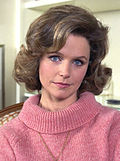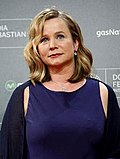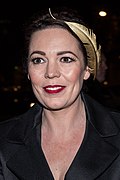| British Academy Television Award for Best Actress | |
|---|---|
 2025 Recipient: Marisa Abela | |
| Country | United Kingdom |
| Presented by | British Academy of Film and Television Arts |
| First award | 1954 (presented 1955) |
| Currently held by | Marisa Abela for Industry (2025) |
| Website | Official website |
This is a list of the British Academy Television Awards for Best Actress. The British Academy Television Awards began in 1955. The Best Actress award was initially given as an "individual honour", without credit to a particular performance, until 1969, when Wendy Craig won for her performance in Not in Front of the Children . Since 1970, nominees have been announced in addition to the winner, and are listed, with the winner highlighted in blue. The Actress category was split into Leading Actress and Supporting Actress, starting in 2010.
Contents
- Winners and nominees
- 1950s
- 1960s
- 1970s
- 1980s
- 1990s
- 2000s
- 2010s
- 2020s
- Superlatives
- Actresses with multiple wins and nominations
- Multiple wins
- Multiple nominations
- References
Julie Walters holds the record of most wins in this category with four, followed by Judi Dench, Thora Hird, and Helen Mirren, with three wins each. The nominations tally includes Helen Mirren and Francesca Annis having received 6 and Judi Dench and Julie Walters having received 7. The award is currently held by Marisa Abela having won most recently in 2025 for Industry .































